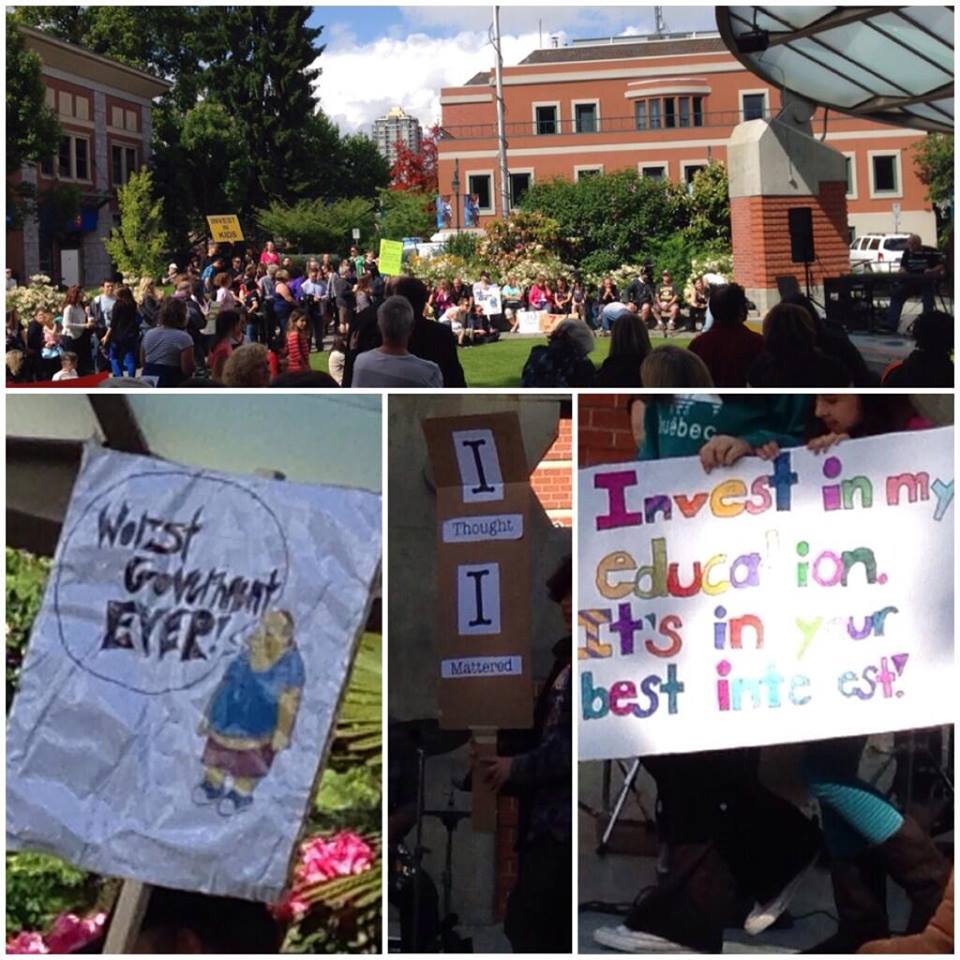
VANCOUVER — Teachers in British Columbia say the government’s plan to dock their pay by 10 per cent won’t stop them from starting job action on Monday.
“Rotating strikes will continue week-to-week, depending on what kind of progress there is at the bargaining table,” said BC Teachers’ Federation president Jim Iker in an interview.
Teachers have said they will walk out of every public school in the province for one day from May 26 to May 29 unless the dispute is resolved.
If no progress is made in negotiations following this round of rotating strikes, another could follow as soon as next Monday, Iker said. While teachers are off the job, extracurricular activities will come to a halt and unionized school support staff will not cross picket lines.
The sticking points in the dispute are pay, class size and classroom support.
The government is offering a 7.3 per cent wage increase over six years. Teachers want 13.7 per cent over four years.
Peter Cameron, the government’s lead negotiator, called that demand unreasonable and said the wage and benefits teachers are seeking would give them four times more than other unions which have negotiated with government.
Iker said the teachers are not taking this action lightly.
“We think we’ve been very patient in this round of bargaining” he added. “At some point in time the thinking was we had to put some pressure on the bargaining table.”
Cameron, who represents the BC Public School Employers’ Association, said teachers’ demands would cost each taxpayer roughly $1,100.
“The union must sooner or later recognize that that’s really out of line,” Cameron said in an interview.
Iker said B.C. teachers are the second lowest-paid in Canada — after Prince Edward Island — and their demands are in line with the cost of living.
The rotating strikes are the latest in a bitter ongoing dispute between teachers and government.
Union members voted 89 per cent in favour of striking in March. Teachers stopped supervising students outside the classroom or communicating in writing to administrators in their first stage of job action.
The government backed off its initial proposal for a 10-year contract, replacing it with a six-year agreement while offering a $1,200 signing bonus. But it then announced it would cut teachers’ pay by five per cent in retaliation for the teachers’ limited job action if a deal were not reached by the end of the school year.
Education Minister Peter Fassbender said the salary clawback amounts to deducting pay based on teachers’ reduction of work.
Teachers declared the rotating strikes after the government’s announcement.
Iker said the job action was prompted by the province’s unfair wage demands and unwillingness to offer any contract improvements to class size, class composition or specialist teachers.
In response to the rotating strikes, government said it would implement a partial lockout which would dock teachers’ pay by 10 per cent, starting on the day of the job action.
The lockout limits the amount of work teachers can do before and after classes and also forces high school teachers to stay home for three days and elementary teachers to be off work for one day.
“We are suspending the performance of specified duties and reducing the hours of work of your members, which provides the basis for this reduction in salary,” said a letter from the BC Public School Employers’ Association.
Iker said the lockout would leave student work unmarked and hurt such extracurricular activities as graduation.
The government responded with an online letter saying the partial lockout would not prevent teachers from volunteering for extracurricular activities or prevent them from marking student assignments.
In January, the B.C. Supreme Court found it was unconstitutional for the teachers to have class composition and size stripped from their collective agreement.
The government then went back to court and received a temporary stay of the ruling.